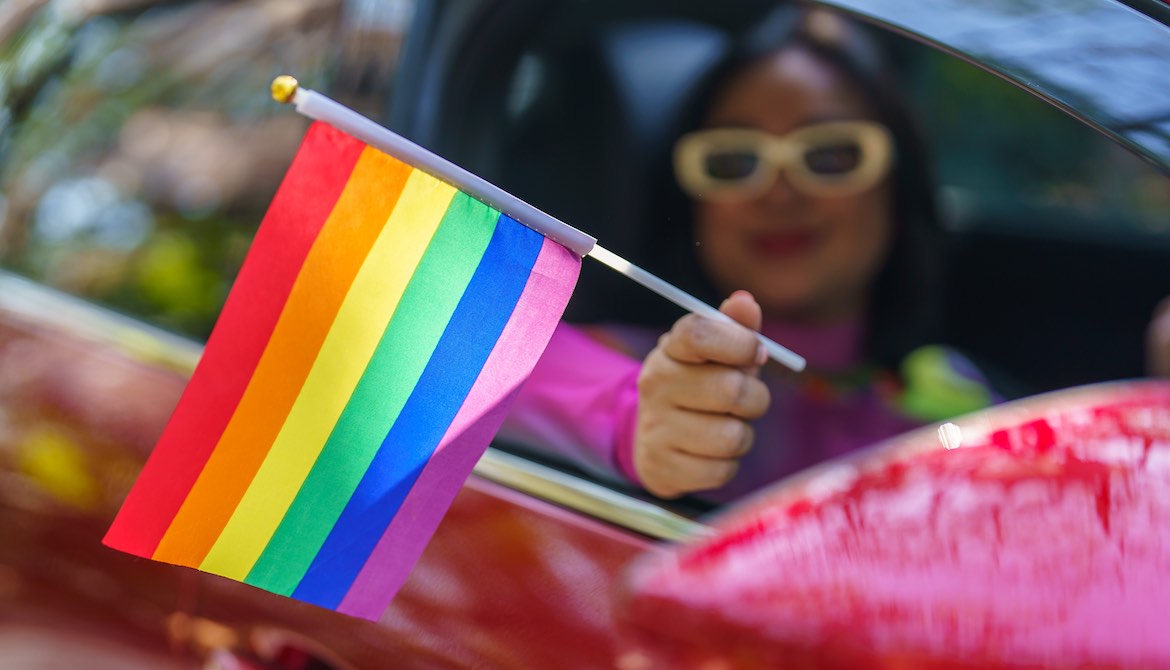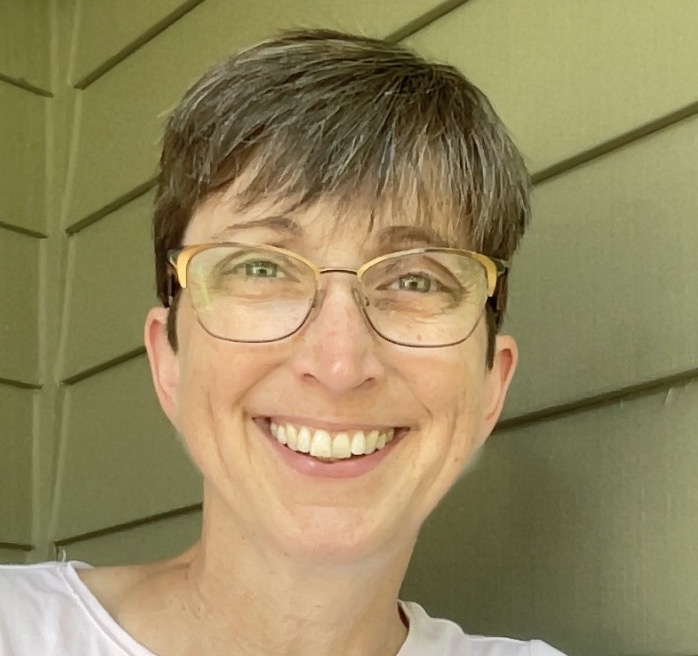5 minutes
Ideas for individuals and organizations that want to be better allies to members of the LGBTQ+ community
At the CU Pride Leadership Conference on Wednesday, Tammy Schultz said she’s determined to be an ally to LGBTQ+ community members and people from other diverse backgrounds because she needs every one of her employees to feel comfortable bringing their “magic” to work.
President/preplanning solutions for CUESolutions provider TruStage (formerly CUNA Mutual Group), Madison Wisconsin, Schultz said it wasn’t so long ago that she heard a panelist talk about how when they got to work, they left their “magic” in the car.
“And I had this moment where … a sadness came over me,” she said. “I just can’t imagine having our employees feel like they need to leave what they think makes them who they are in the car because they don’t know how someone will … react to them. … It’s really important to make sure we’re advocating for everybody, because listen, as a leader, I need that magic every day. I need that magic to show up, and I don’t want anybody leaving it in the car.”
Schultz said another reason she’s an ally goes back to the quote from Martin Luther King Jr., “Silence is betrayal.” “And so, sitting back and saying nothing when [I] see something that’s not right is really hard for me to do,” she said.
Speaking in the same conference session, Lynn Heckler said her allyship for members of the LGBTQ+ community comes from her deep-seated belief that sexual orientation and gender are as much a part of a person as the nose on their face.
“We wouldn’t suppress or even persecute a person because of their nose,” said Heckler, chief talent officer at CUESolutions provider PSCU, St. Petersburg, Florida. “But we have done it to the LGBTQ+ community broadly, historically.
“And of course, I have friends and I have family members that are part of the community. And I believe that they should have exactly the same rights and privileges as I do. I don’t think that anything should be different just because they’re part of the community. And I also feel like our workplaces are better when people can live their truth at work and show up as who they truly are.”
Throughout the CU Pride event, speakers talked about allyship, how to start being an ally and how to grow allyship both in oneself as an individual and in organizations where you work. Here is just some of what was shared.
How Allies Can Get Started and Continue to Grow
Recognizing that becoming an active ally can seem like a daunting task, Chip Lusk, CEO of $730 million IDB Global Federal Credit Union, Washington, D.C., advised starting small. For example, Lusk took a diversity, equity and inclusion certificate course as a first step. Since then, his organization has established a DEI council, written a DEI strategic plan and started offering staff training on such key DEI concepts as microaggressions.
Heckler also recommended starting with education and taking other small steps to build your allyship. Out and Equal and Human Rights Campaign both offer tools and resources that might be helpful, she said. She also suggested finding a champion from an affinity group—whether that’s women, Black people or parents—to start an employee resource group for members of that group and their allies.
“Ask your employees what they would like,” Heckler advised. “Recognize incorrect, exclusionary practices. Use correct pronouns. … There are like, hundreds of things, but it all starts with educating yourself and then asking your team members, ‘What would make you feel more welcome?’ ‘What would make you feel like you belong?”
After PSCU started asking employees these kinds of questions, “we found it just sort of takes on this life of its own, and then it’s not owned by leadership anymore. … The team members own it. And it’s just so amazing because all I have to do is say, ‘Yes. Oh yes, you can.’ And they just … create it and evolve it.”
CUES member Marci Francisco, CCE, chief experience officer at $3.7 billion Premier America Federal Credit Union, Chatsworth, California, advised looking to make regular organizational offerings as inclusive as possible.
“We do coffee chats … and we say everybody is included, but there are times where it’s not easy for everybody in the organization to attend—or maybe they don't feel welcome. … So maybe instead of a one-on-one coffee chat, maybe you feel a bit more like three and four in a coffee chat.
“Once we were able to kind of land on ‘There are other ways to do this,’ then it became possible to look at the program through the lens of ‘Are we truly creating a safe space?’ and ‘Will everyone be able to attend?’” she explained.
In another session of the CU Pride event, Cedric Ellis, EVP/chief enterprise services officer at TruStage, said it’s important for leaders of organizations that want to be allies to ask themselves, “What are we doing in terms of policies?” For example, TruStage has a social justice statement that spells out what the organization believes, “so we’re really clear on where we stand.”
In another session, Jorge Esteban encouraged credit union leaders to consider the influence they have in different situations at work.
“Allyship is not a static concept; it is a dynamic one,” said Esteban, VP at Visa. “I may be an ally in one room. I may not play that role in another. It changes.”
Esteban said allyship also involves “taking some arrows.”
“It’s not being silent,” he said. “It’s leveraging your power. A lot of power is not hierarchical. You are often in rooms where you are an expert or you have a great deal of influence and social capital with the people around you. So that’s why I mean that it is dynamic. You have tools within your tool belt that change based on … the room that you’re in.”
He also said allyship is about action. “Allyship is a noun. You’ve got to make it a verb.”
Ellis also spoke passionately about taking allyship into action.
“I think that we’ve got to figure out how to provide resources to my community,” added Ellis, a gay Black man who came to his current position through human resources leadership roles. “We’ve got to figure out: How do we show up and support not just our employees, but how do we get actively involved [in the larger community]? How do we actively participate in events and activities? And how do we speak out against injustices, particularly at this time?
“Not to get political, but it is. It’s personal, and it’s political. There’s a lot going on around the country to strip the rights of people like me. ... Folks have got to get to the point where they … understand that equal rights for others doesn’t mean less rights for you. It ain’t pie. So, … let’s try to be as inclusive and embracing as possible.”
Lisa Hochgraf is CUES’ senior editor. Join CU Pride as an individual or organizational ally to gain access to the replay of all Wednesday’s conference sessions that will be available later this month. Also, check out the organization’s Pride month activities.






